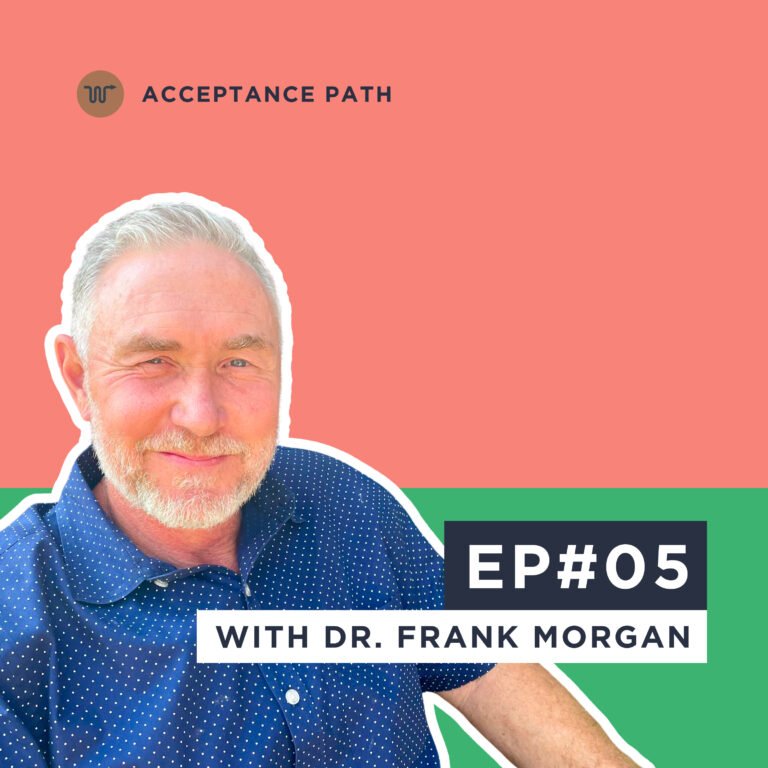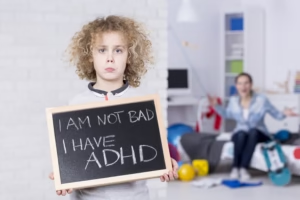
Two mental health experts have joined forces to make an uplifting podcast about well-being and personal growth. We use this show to share fresh and sometimes eye-opening ideas, helping listeners create a more fulfilling life. We’re not pushing any one viewpoint – instead, we’ll bring in guests from all walks of life to expand our understanding of the world. Come along with us as we explore different outlooks together.
Uncover the hidden dangers of sugar consumption and its impact on physical and mental health. Dr. Frank Morgan explores the history of sugar intake, explains how high-fructose corn syrup contributes to obesity and mood disorders, and reveals the surprising connections between diet and brain function. Learn practical strategies to reduce sugar intake, embrace healthier eating habits, and potentially reverse harmful effects on your body and mind.

In a recent episode of the Acceptance Path podcast, Dr. Frank Morgan, a medical doctor passionate about preventive health, shed light on the profound impact of sugar consumption on our physical and mental well-being. As obesity rates and related health issues continue to rise, understanding the relationship between foods and depression has become increasingly crucial.
The Sugar Epidemic: A Historical Perspective
Dr. Morgan traced the history of sugar consumption, revealing a startling increase over time. Centuries ago, sugar was a rare commodity, used more as a bartering tool than a food source. By the 1700s, the average European consumed only about two pounds of sugar per year. Fast forward to 2020, and the average American was consuming a staggering 140 pounds annually.
This dramatic increase in sugar consumption correlates with the rise of obesity and related health issues. Dr. Morgan pointed out, “If you look back at those street scenes from 1912, those are people walking in New York City who had office jobs. They weren’t any more active than we are now. They were equally sedentary. So it wasn’t a matter of activity, it’s a matter of something in our diet.”
The Invention of High Fructose Corn Syrup
A significant turning point came in 1970 with the invention of high fructose corn syrup (HFCS). This cheap, corn-based sweetener quickly became ubiquitous in processed foods and beverages. Dr. Morgan explained, “Since 1975, we’ve had an absolute explosion of the epidemic of obesity and the diseases that go along with that, including type 2 diabetes and cardiovascular disease. It’s because of sugar that this has happened.”
The Link Between Foods and Depression
Recent research has begun to uncover the connections between sugar consumption, brain health, and mental well-being. Sheree, one of the podcast hosts, cited a study from UCLA Health Department that found “a range of diseases from diabetes to cardiovascular disease and from Alzheimer’s to ADHD, and they’re all linked to changes in the brain. Hundreds of genes in the brain have been damaged by fructose.“
This research underscores the importance of considering the role of foods in depression and other mental health disorders. As our understanding of the gut-brain connection grows, it’s becoming clear that what we eat has a profound impact on our mood and cognitive function.
The Sugar-Brain Connection
Dr. Morgan explained how sugar, particularly fructose, affects our brain and metabolism—linking the foods and depression:
- Insulin resistance: Excessive sugar consumption leads to insulin resistance, not just in the liver but also in the brain. This can impair the brain’s ability to use glucose for fuel, potentially contributing to cognitive decline and mood disorders.
- Dopamine release: Eating sugary foods triggers the release of dopamine, the “reward” neurotransmitter. Over time, this can lead to a cycle of craving and overconsumption.
- Inflammation: Sugar can cause inflammation in the hippocampus, a brain region crucial for memory and learning. An inflamed hippocampus may also have difficulty receiving signals of fullness from the gut, leading to overeating.
- Gut microbiome disruption: Excessive sugar intake can alter the balance of gut bacteria, which play a crucial role in mood regulation and overall mental health.
Foods and Depression: The Road to Recovery
While the impact of sugar on our health can seem overwhelming, there’s good news. The body has a remarkable ability to heal when given the right tools. There are way to practice functional tools to practice self-care. Here are some strategies to help reduce sugar intake and improve both physical and mental health:
- Start your day right: Choose protein-rich breakfast options like eggs, nuts, or cottage cheese instead of sugary cereals or pastries.
- Stay hydrated: Sometimes thirst can be mistaken for hunger. Try drinking water when you feel the urge to snack.
- Opt for whole foods: Replace processed foods with whole, nutrient-dense alternatives. For example, try cauliflower crust pizza or zucchini noodles instead of their high-carb counterparts.
- Embrace healthy fats: Incorporate omega-3 rich foods like fatty fish, walnuts, and flaxseeds into your diet. These nutrients can help counteract the harmful effects of sugar on the brain.
- Read labels carefully: Sugar hides in many unexpected places, including salad dressings and barbecue sauces. Be vigilant about checking ingredient lists.
- Consider a Mediterranean-style diet: This eating pattern, rich in vegetables, fruits, whole grains, lean proteins, and healthy fats, has been shown to support both physical and mental health.
- Retrain your palate: It takes time, but your taste buds can adapt to enjoy less sweet foods. Be patient with yourself as you explore new flavors and textures.
The Power of Mindful Eating
As we become more aware of the relationship between foods and depression, it’s essential to approach eating with mindfulness—an important concept that I dissected in this article. Dr. Morgan emphasized, “Health is not found in a pill bottle. If you want to be healthy and not a sick person, it involves getting moving and eating right.”
By making conscious choices about the foods we consume, we can take significant steps toward improving both our physical and mental well-being. Remember, minor changes can lead to big results over time. As you reduce your sugar intake and focus on whole, nutrient-dense foods, you may find improvements not just in your physical health, but in your mood, energy levels, and overall quality of life. It leads to a reduction of association between foods and depression.

The Hidden Dangers of Sugar Substitutes
While many people turn to artificial sweeteners as a “healthier” alternative to sugar, Dr. Morgan cautioned against this approach. He explained that sugar substitutes can also alter gut flora and have similar effects on our insulin regulatory system as regular sugar. Even so-called “natural” alternatives like agave nectar, which is 80-85% fructose, can be problematic for those with type 2 diabetes.
Instead of relying on sugar substitutes, Dr. Morgan encourages people to embrace a wider range of flavors, including savory, bitter, and salty tastes. This approach can help retrain our palates and reduce our overall desire for sweetness.
The Impact of Sugar on ADHD and Other Mental Health Disorders
The podcast discussion also touched on the potential link between sugar consumption and mental health disorders, including ADHD. Sheree mentioned a study from Holland that found an elimination diet conducted on children with ADHD resulted in a vast reduction of symptoms in 70% of the children during a three-month period. This significant improvement underscores the potential impact of diet on mental health and behavior.
Dr. Morgan noted that this level of improvement is rarely seen with conventional ADHD medications, highlighting the importance of dietary interventions in managing mental health disorders.
The Global Impact of Sugar Consumption
As awareness of the health risks associated with sugar consumption grows in Western countries, large food companies have shifted their focus to emerging markets. Sheree cited a startling statistic from Dr. Jason Fung’s book, “The Obesity Code”: In just one generation, diabetes rates in China have increased by over 1000% as soda sales have flourished.
This rapid increase in sugar consumption and its associated health problems in developing countries mirrors the pattern seen in the West decades earlier. It underscores the need for global awareness and action to address the sugar epidemic.

The Role of Omega-3 Fatty Acids in Brain Health
While the effects of sugar on brain health can be alarming, there is hope. Sheree mentioned a UCLA study that found omega-3 fatty acids, particularly DHA, may help reverse the harmful changes produced by fructose in the brain.
Dr. Morgan expanded on this, explaining that our modern diet, heavily reliant on seed-based agriculture, tends to be high in pro-inflammatory omega-6 fatty acids and low in beneficial omega-3s. He recommends incorporating more omega-3 rich foods, such as fatty fish, into our diets to support brain and heart health.
Practical Steps to Reduce Sugar Intake
Dr. Morgan offered several practical tips for reducing sugar consumption:
- Treat sugar as an occasional treat rather than a daily staple.
- Avoid starting the day with sugary foods, as this sets a poor metabolic tone for the rest of the day.
- Be cautious of hidden sugars in sauces, dressings, and other processed foods.
- Avoid drinking sugar, including fruit juices, which can be as harmful as soda.
- Embrace a variety of natural flavors, including savory, bitter, and salty tastes.
The Mediterranean Diet: A Balanced Approach
When asked about the Mediterranean diet, Dr. Morgan expressed his support for this eating pattern. He noted that it’s not only heart-healthy but also rich in omega-3 fatty acids, which can help counteract the inflammatory effects of our typically omega-6 heavy diets.
Dr. Morgan recommends a “no sugar Mediterranean diet” as a balanced and enjoyable approach to healthy eating. This way of eating focuses on whole foods, healthy fats, and minimal added sugars, providing a sustainable path to better health.
Foods and Depression: A Path Forward
In conclusion, the connection between foods and depression is complex but undeniable. By understanding the impact of sugar on our bodies and brains, we can make informed choices that support our mental and physical health. As Dr. Morgan reminds us, “There are ways to approach this in a balanced and healthy and sensible way where we’re just not consuming a lot of sugar, hardly any sugar, and still really enjoying our food and enjoying life.”
By adopting a mindful approach to eating, focusing on whole foods, and reducing our sugar intake, we can take significant steps toward improving our overall well-being. Remember, it’s not about complete deprivation, but rather about making conscious choices that nourish both our bodies and our minds.
As we continue to learn more about the intricate connections between foods and depression, we empower ourselves to make choices that support lifelong health and happiness. By retraining our palates, exploring new flavors, and embracing a more balanced approach to eating, we can break free from the cycle of sugar addiction and discover a world of delicious, nourishing foods that support both our physical and mental health.



